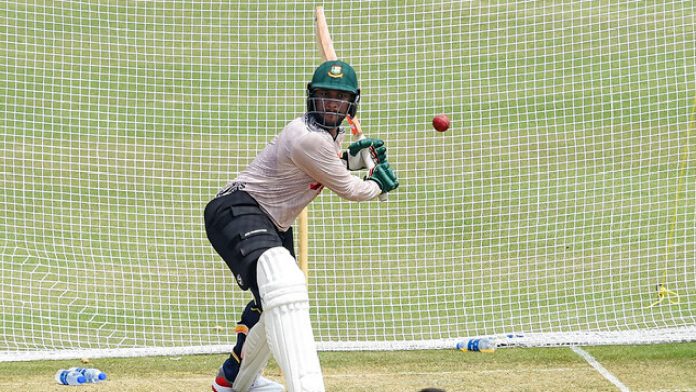Former Bangladeshi captain Shakib Al Hasan joined the Awami League party, which had been expelled from power by former premier Sheikh Hasina, as an MP in January following elections.
Shakib Al Hasan, the cricket player and former lawmaker from Bangladesh, was granted permission by the de facto leaders who overthrew his former boss on Wednesday to continue playing for his country in Pakistan. Former Bangladesh captain Shakib was elected to the legislature in January to represent the Awami League party, which was led by the deposed premier Sheikh Hasina, following a lack of meaningful opposition throughout the election process. He lost his position last week when the legislature was dissolved in the wake of Hasina’s sudden resignation and helicopter departure to India, marking the dramatic end of a national revolt spearheaded by students. Shakib was allowed to stay with the team even though he had ties to Hasina and the Awami League thanks to one of those student leaders, 26-year-old Asif Mahmud, who is currently the de facto sports minister in an interim administration.
Director of the Bangladesh Cricket Board (BCB) Iftekhar Ahmed told AFP, “We presented the team before the sports adviser.”
“He did not object to Shakib’s inclusion. The team should be chosen based only on merit, he stated.
Mahmud was a prominent figure in the protest group Students Against Discrimination, which coordinated the demonstrations that led to Hasina’s overthrow.
He is a member of the advisory cabinet headed by Nobel laureate Muhammad Yunus, which was established when Hasina fled, along with fellow student activist Nahid Islam.
On Wednesday, the AFP observed Shakib, 37, working out at the Gaddafi Cricket Stadium in Lahore.
He was playing in a Twenty20 tournament in Canada when he joined the Bangladeshi team in Pakistan. He had not been seen since Hasina resigned.
“Must have returned home.”
Despite being an active Facebook user, Shakib has not posted in public since July 14, which was two days before to the start of the deadly police crackdown on the protesters.
Rafiqul Islam, a former member of the BCB board who left before Hasina took over, told AFP that “Shakib cannot avoid the responsibility of mass killings as a legislator.”
“He never voiced a protest when students were being killed. For many of these students, he was an icon. He ought to have explained his silence by coming home first.”
Rafiqul participated in a demonstration on Tuesday outside the BCB’s offices at the Sher-e-Bangla National Stadium, the primary cricket stadium in Bangladesh.
Along with other sports administrators, he called for the removal of cricket board members who they perceived to be loyal to Hasina.
“Bangladesh is falling behind in world cricket due to mismanagement, autocratic behavior, and unchecked corruption,” the organization stated in a statement on Monday.
Since her escape on August 5, Hasina’s party offices have been looted and set on fire, and many Awami League members have fled into hiding out of fear of violence.
Bangladesh’s courts, central bank and other government institutions have been purged of Hasina loyalists since Yunus’ interim government took power.














